Compare self-storage in New Zealand at Canstar Blue. Kennards Self Storage, National Mini Storage, Storage King and National Storage were compared on Overall Satisfaction, Accessibility, Convenience of Location, Customer Service, Quality of Storage, Safety & Security and Value for Money.
See our Ratings Methodology.
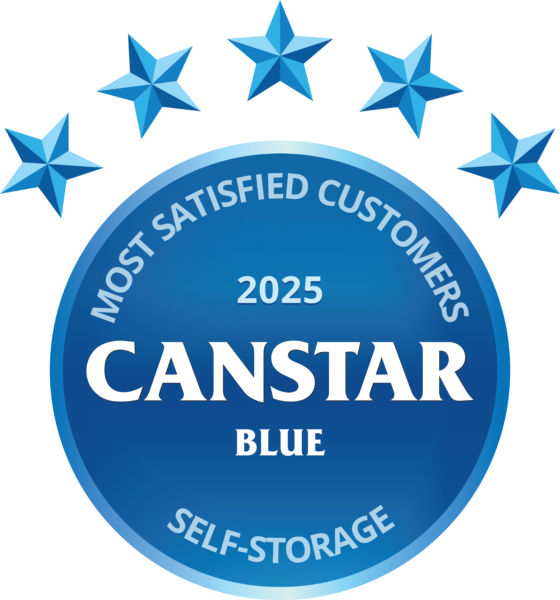
For the second time in three years, Kennards Self Storage has been rated the country’s best self-storage provider, and the winner of Canstar Blue’s Self-Storage Award.
Our review compares self-storage companies on customer satisfaction, so you can discover what other Kiwis think about our compared self-storage brands before you go ahead and choose a provider. Think of it like asking hundreds of your closest friends and family which self-storage provider they think is best!
Canstar Blue surveyed 544 Kiwis who had used a self-storage provider over the past two years for their feedback on the self-storage company they used.
Respondents rate their satisfaction with their self-storage brands from zero to ten, where zero is extremely dissatisfied and ten is extremely satisfied. Brand satisfaction was rated by respondents on the following criteria:
The winning brand is the one that receives the highest Overall Satisfaction rating once all the scores from the Overall Satisfaction criteria are combined and averaged.
Brands must have received at least 30 responses to be included, so not all brands available in the market have been compared in this survey. The brands rated in this survey are listed below in order of best overall satisfaction.
Find more information on our Most Satisfied Customer methodology.

Kennards Self Storage has taken home Canstar Blue’s Self-Storage Award twice in the past three years, and this year’s award win comes on the back of a nearly perfect set of ratings from its customers.
Kennards earns top 5-Star ratings across all our award categories except for Quality of Storage, for which it has a great 4-Star rating.
Kennards Self Storage is an Australian company that operates here only in the North Island:
Auckland: 3 locations
Tauranga: 1 location
Hastings: 2 locations
Napier: 2 locations
Palmerston North: 1 location
Wellington: 1 location
National Mini Storage places second on our awards table with a great mix of predominantly 5- and 4-Star ratings. It earns its highest ratings for Location, Quality of Storage and Safety & Security. Its lowest rating, 3 Stars, is for Value for Money.
National Mini Storage has 13 locations spread across Auckland.
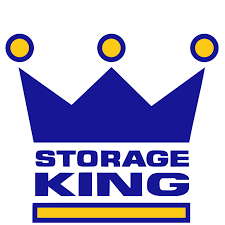
Storage King earns predominantly great 4-Star ratings, including for Overall Satisfaction and Customer Service. Storage King’s two lowest ratings, 3-Stars, are for Value for Money and Accessibility.
Storage King is an Australian owned and operated company that has 20 locations across the North Island: 15 are spread across Auckland; three in the Waikato; one in Tauranga and one in Rotorua.
It has four storage facilities in the South Island: one each in Dunedin and Wanaka, and two in Christchurch.

Rounding out our awards table, National Storage earns predominantly 3-Star ratings from its customers. However, while not a top rating, 3 Stars is by no means a measure of dissatisfaction. Rather it shows that National Storage’s customers are happy with their levels of satisfaction in these 3-Star rated categories.
It’s also worth noting that National Storage earns the only 4-Star rating for Value for Money on our awards table, and a great 5-Star rating for Convenience of Location.
National Storage is one of Australasia’s largest self-storage providers, operating over 230 centres across Australia and New Zealand. Here in Aotearoa it has 34 locations spread across the country.
North Island
Auckland: 8 locations
Hamilton: 5 locations
Tauranga: 1 location
Rotorua: 3 locations
Wellington: 8 locations
South Island
Canterbury: 6 locations
Queenstown: 1 location
Dunedin: 2 locations
Not all brands in the market qualify for our ratings (based on minimum survey sample size), but that doesn’t mean they’re not worth considering. Here are more brands to check out before making a self-storage rental decision:

All Secure Self Storage has 16 locations across the country, in main centres from Auckland down to Christchurch and Timaru.

Guardian Secure Self Storage has four North Island locations: two in Auckland, plus Hamilton and Tauranga.
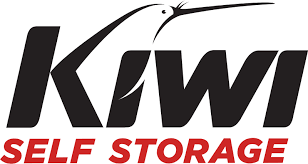
A former winner of our award, in 2024, Kiwi Self Storage just missed out on our award ratings this year. It has three locations in Auckland (Ellerslie, Mt Roskill and North Shore) and one storage facilities in Wellington.

Safestore has three Auckland locations.
There are many things to consider when choosing the right self-storage provider to meet your needs. However, it’s essential to consider certain key factors when making your rental decision.
Interestingly, our latest self-storage research highlights the importance of Customer Service: 27% of respondents in our survey cite Customer Service as the biggest driver of their satisfaction, just pipping Value for Money, which was the No.1 concern for 26%.
Safety & Security is far less of a concern, perhaps because all major self-storage facilities have great security and safety measures in place to prevent theft and property damage.
Here is what the consumers in our survey say are the main things they consider when rating their self-storage providers.

When weighing up your self-storage needs, the first question you need to ask yourself is how much space you need.
Although we always underestimate the amount of space our possessions take up, you need to remember that when it comes to self-storage you need to visualise the whole volume, from floor to ceiling of your storage unit, and not just the floor space. This is because you should aim to pack in your possessions like a game of Tetris, if possible.
As a general rule of thumb:
Always thoroughly research the sizes of storage units available at your choice of provider and spend time working on an accurate estimation of your requirements.
It’s a good idea to ask your storage provider how easy it is to switch to a larger/small unit should your requirements change further down the line.
According to Canstar Blue’s latest research, most Kiwis hire their self-storage units for under six months:
| Time | % |
| < 1 month | 11% |
| 1-6 months | 39% |
| 6-12 months | 20% |
| >12 months | 27% |
Most storage units have one-month minimum storage periods. But if your plans are for the longer term, then it’s worth asking if any discounts apply. Long-term storage often comes at a discount, especially if you pay upfront.
But regardless of how long you plan to stay, it’s a good idea to check the notice period, so you don’t end up paying for longer than you need.
Self-storage facilities have different opening hours, so always check when you’ll be able to get easy access to your stored goods. Some providers also have 24/7 access and on-site managers available 24-hours if you encounter a problem.
Good security should cover general access to the facility and complete CCTV coverage. An extra level of security includes separate alarms on individual units.
However, just because a self-storage facility takes security precautions, don’t assume that your goods are safe … or covered by insurance. Generally, home contents insurance policies don’t cover your possessions if they are being stored away from your home. And self-storage companies don’t automatically cover your goods on their premises.
So, if you’re storing goods that have any kind of value, it’s advisable to organise separate insurance for them, either through your insurer, or through a policy offered by the storage-unit owner.
NZ weather can be unpredictable, and humid. All storage units should be weather-tight, but if you’re storing particularly delicate items, or possessions that could be adversely affected by high humidity – for example fabrics or artwork – it’s worth looking into the availability of units offering climate or humidity control.
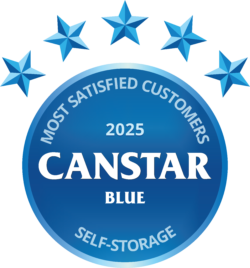
Will you be spending time in your unit for any reason and need access to power or wi-fi while you are there?
If you’re moving large heavy items, does the storage facility have a forklift and operator that you can access to do the grunt work for you? And does it provide a good selection of the other essential tools needed when you’re lugging around large boxes, such as pallet jacks, trolleys, trucks and trailers?
While packing materials are available to purchase from most storage companies, also consider any excess or used packing materials you might want to discard as rubbish. Often, the use of a storage unit’s skip bins comes with a small fee.
Self-storage means that you hold the key to your unit’s padlock – which you must provide. Of course, you’ll be able to purchase one from your self-storage provider, but if you’ve already got one going spare at home, you can BYO and save a few extra dollars!

If it can fit in a box, put it in a box. You don’t want to leave small items placed about, uncovered. Boxes provide great protection, and by using similar sized ones, it can help make stacking a breeze. Be careful to place the heaviest ones at the bottom, with lighter and more delicate ones on top. And be sure not to over, or under, fill them. This can lead to the boxes collapsing or bursting open.
If a box is half-empty, fill it with packing material, such as crumpled paper.
Place these in archival boxes or book cartons, and ensure documents are placed flat and neat. Keep in mind that books can be heavy, so don’t overfill your boxes. If you are concerned about the books’ covers, placing cloth or paper between each book can help to protect them.
Don’t hang up clothes in storage, as over a long period of time this can cause stretching and damage. Fold items neatly in acid-free boxes to avoid any discolouration.
It’s important to cover delicate furniture and upholstery. This should be done with sheets or moving blankets. If stacking items on top of each other, make sure a sheet, cloth or moving blanket is placed between them.
Plastic wrap and coverings make for good protection, but can cause mould and mildew during long-term storage.
Use tissue, packing or newspaper, and use a lot of it. Items of glassware, crockery, ceramics and porcelain should all be individually wrapped before being placed into a box or carton. Use more packing paper and tissue to fill in any gaps and to reduce movement between items. Make sure to fill any spaces so the box is sturdy, and don’t place heavier items on top.
Artwork and mirrors shoulder be wrapped, too. Preferably then placed in a picture carton.
Make sure everything is clean and dry before storing. If possible, place back into original boxes.
Whiteware items must be thoroughly cleaned and dried before storing. Leave any doors on ovens, refrigerators, etc, slightly open to prevent mould. A deodoriser can help prevent odours.
Label your boxes so you know what’s inside, and be sure to include a big, bold fragile warning if necessary. If there are certain items you’ll need access to, store them in more accessible places.
Make sure you don’t store anything perishable (such as food items) or living! While no-one is expected to store a pet, don’t forget plants need water and light and won’t do well in a storage unit.
Also, ensure you don’t store anything harmful, toxic or combustible, such as certain cleaners, solvents, petrol or paint. If you are storing lawnmowers or barbeques, make sure they are empty of petrol or gas. Also, make sure they are clean. You don’t want to bring any bugs, germs, or dirt into your storage unit.

Bruce Pitchers is Canstar NZ’s Content Manager. An experienced finance reporter, he has three decades’ experience as a journalist and has worked for major media companies in Australia, the UK and NZ, including ACP, Are Media, Bauer Media Group, Fairfax, Pacific Magazines, News Corp and TVNZ. As a freelancer, he has worked for The Australian Financial Review, the NZ Financial Markets Authority and major banks and investment companies on both sides of the Tasman.
In his role at Canstar, he has been a regular commentator in the NZ media, including on the Driven, Stuff and One Roof websites, the NZ Herald, Radio NZ, and Newstalk ZB.
Away from Canstar, Bruce creates puzzles for magazines and newspapers, including Woman’s Day and New Idea. He is also the co-author of the murder-mystery puzzle book 5 Minute Murder.
Used self-storage longer than originally planned: 50%
Only use self-storage when moving house: 40%
Value a close, accessible storage over price: 34%
Didn’t bother insuring goods in storage: 24%
Ended up paying for more space than required: 20%
Use storage for car only: 9%
Use storage for boat only: 4%
Between homes: 42%
Not enough space in house: 35%
Moved to a different area for work: 13%
Home being renovated: 13%
Travelling overseas: 12%
Relationship ended: 9%
Rented out home: 8%
Convenience: 50%
Price: 26%
Features (e.g. 24/7 access): 16%
No: 68%
Yes: 27%
Canstar Blue surveyed 5253 New Zealand consumers across a range of categories to measure and track customer satisfaction, via ISO 26362 accredited research panels managed by Qualtrics. The outcomes reported are the results from respondents who had used self-storage in the past two years. In this case, 544 New Zealanders. Brands must have received at least 30 responses to be included. Results are comparative and it should be noted that brands receiving three stars have still achieved a satisfaction measure of at least six out of 10. Not all brands available in the market have been compared in this survey. The ratings table is first sorted by star ratings and then by mean overall satisfaction. A rated brand may receive a ‘N/A’ (Not Applicable) rating if it does not receive the minimum number of responses for that criterion.
The past winners from Canstar Blue’s Self-Storage ratings:

Best-Rated Self-Storage - May 6th
How to buy in a retirement village
In New Zealand there are four common legal titles used when buying into a retirement village:
1. Licence to occupy
A license to occupy (LTO) is a legal paper that grants …

Best-Rated Self-Storage - April 8th
How to choose the right retirement village
1. Assess your needs and preferences
Start by evaluating your current and future needs. Consider factors such as location, lifestyle preferences, level of care required, recreational activities, healthcare facilities, and …
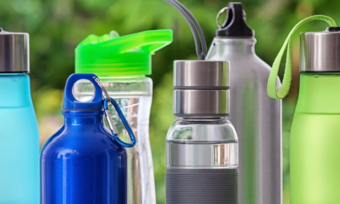
Appliances - March 28th
Why do I need to clean my water bottle/travel mug?
Cleaning your water bottle or travel mug regularly is essential for several reasons:
Hygiene: bacteria, mould, and other microorganisms can accumulate in your water bottle or …
– Read more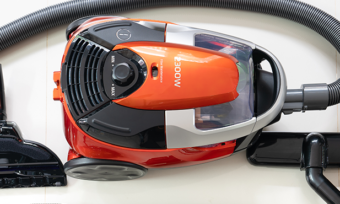
Bathroom Cleaners - February 18th
If you vacuum sucks at sucking, it could just need a deep clean. Keeping your vacuum cleaner in top shape ensures it provides optimal performance, lasts longer, and remains hygienic. This comprehensive guide caters to …
– Read more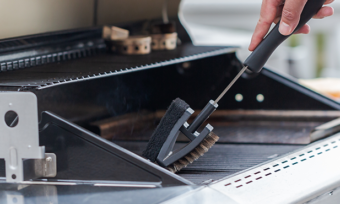
Cleaning steps
Before you start cleaning, ensure that the BBQ is turned off and has cooled down completely. Also, make sure you disconnect the propane tank or natural gas line if you have a gas grill.
1. …